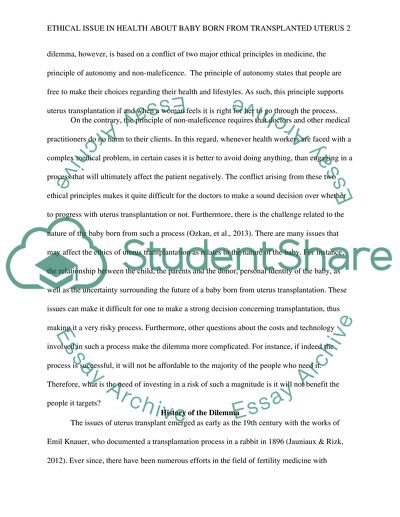Cite this document
(“Ethical issue in health about baby born from transplanted uterus Essay”, n.d.)
Retrieved from https://studentshare.org/health-sciences-medicine/1685357-ethical-issue-in-health-about-baby-born-from-transplanted-uterus
Retrieved from https://studentshare.org/health-sciences-medicine/1685357-ethical-issue-in-health-about-baby-born-from-transplanted-uterus
(Ethical Issue in Health about Baby Born from Transplanted Uterus Essay)
https://studentshare.org/health-sciences-medicine/1685357-ethical-issue-in-health-about-baby-born-from-transplanted-uterus.
https://studentshare.org/health-sciences-medicine/1685357-ethical-issue-in-health-about-baby-born-from-transplanted-uterus.
“Ethical Issue in Health about Baby Born from Transplanted Uterus Essay”, n.d. https://studentshare.org/health-sciences-medicine/1685357-ethical-issue-in-health-about-baby-born-from-transplanted-uterus.


